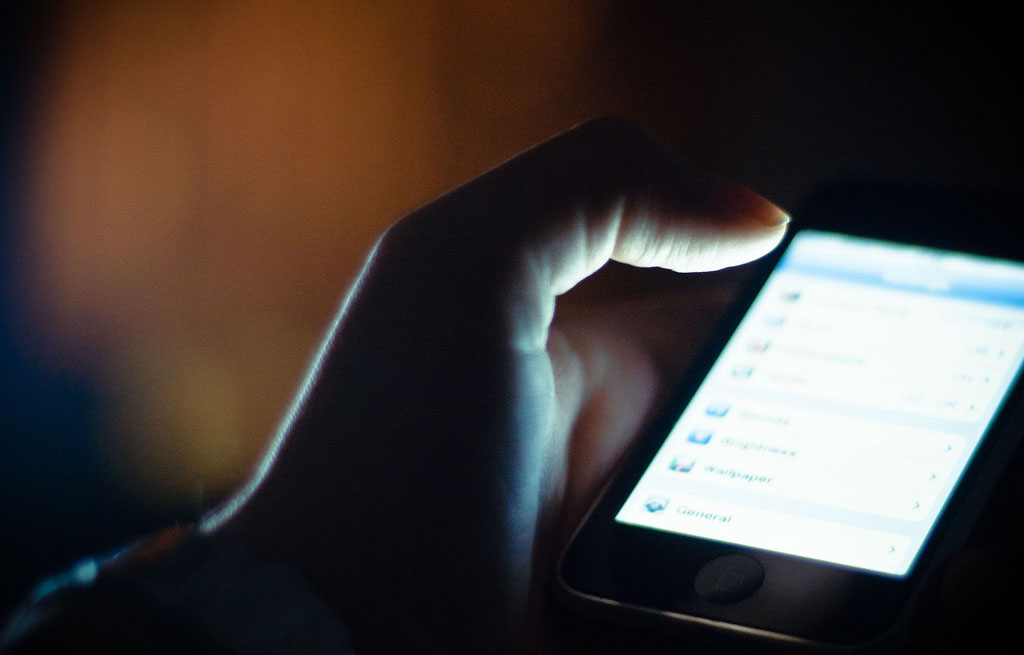Views expressed in opinion columns are the author’s own.
Every night, I lie in bed sporting sweats, reveling in a fresh and makeup-free face and blasting music while I scroll through my social media feeds. On Snapchat, I run into the occasional friend out partying and I get to live through every single moment of Kylie Jenner’s day if I’m lucky, which I usually am because when is Kylie Jenner not on Snapchat? I scroll through Instagram to view the latest aesthetically-perfect travel photos from my favorite makeup guru’s most recent escapade. And on Twitter, I stomach the latest tweets from President Trump and chuckle at the most recent meme to surface in the last hour.
Long story short, my nights are spent glaring at the blindingly luminous worlds that I hold in the palm of my hand. And while I can spend hours “unwinding” and “relaxing” from my stressful day by going on these platforms, I unintentionally end up adding to the stress I attempt to alleviate.
For one thing, while we traverse through these social networks, we tend to leave the ones we’re physically in. A scholarly article, published by the NIH, titled “Online Social Networking and Mental Health” explores the effects of the reduction in interpersonal communication because of social media. While I have the ability to contribute my occasionally funny and occasionally interesting thoughts on Twitter, the study argues that “these interactions are shallow and cannot adequately replace everyday face-to-face communication.” Social networks are even potential catalysts for feelings of loneliness and depression. One study featured in the journal “found a statistically significant positive correlation between depressive symptoms and time spent on [social networks].”
At a personal level, my ability to live vicariously through my favorite icon’s lavish vacations and even my closest friends’ well-deserved spring break trips doesn’t necessarily make me happy for them. Rather, I find myself comparing the mundaneness of my boring nights to their beautiful moments on private beaches. In the same capacity, these individuals aren’t always having the times of their lives either, so where exactly do our real, genuine selves fit in?
On top of potentially contributing to depressive symptoms, social media can even affect how we view ourselves. A study done on 100 Facebook users at York University showed that certain activities on Facebook, like the profile picture feature, were negatively correlated with self-esteem, according to measurements done with the Rosenberg Self-Esteem Scale. And because we can pick and choose what to emphasize on our platforms, we portray ourselves in the best light, which can be a positive or negative practice depending on your perspective.
One final study notes that those who use seven to 10 social media platforms are three times more likely to be depressed or anxious, as opposed to those who use no more than two. Some of the contributing factors include feeling overwhelmed to “manage their profiles” and that “the more profiles they had, the more the pressure added up.”
It’s difficult to distinguish the point at which social media becomes harmful. In my junior year of high school, I had to give up all forms of social media for a week for a project. I felt significantly less pressured and overwhelmed to keep up with my profiles and my friends’ lives and didn’t feel compelled to document every waking moment of my day. While it’s safe to say that social media will definitely be around for a while, we all need to make a conscious effort to unplug every now and then, giving our minds the peace they need from Kylie Jenner’s latest flashy Snapchat stories.
Maris Medina is a freshman journalism major. She can be reached at marismedina29@gmail.com.



